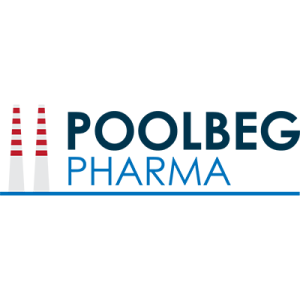The future of drug discovery and pharmaceutical research is being reshaped by artificial intelligence (AI), heralding a new era of speed, efficiency, and precision. AI’s potential to accelerate drug development, from molecular prediction to optimised design and improved clinical trials, promises to significantly cut costs and time-to-market for new medications. This transformation in pharmaceutical R&D offers both advancements and challenges.
In drug design and discovery, AI can identify and optimise novel drug candidates through machine learning models that predict the efficacy and safety of millions of compounds in silico, substantially reducing the need for physical testing. This acceleration of the discovery phase and cost reduction comes with the caveat that models require vast, high-quality datasets, and results must be carefully validated to ensure they translate to real-world biological systems.
During preclinical development, AI can predict pharmacokinetic properties and drug toxicity before clinical trials begin, reducing the likelihood of late-stage failures due to safety concerns. However, these predictions are only as reliable as the data they are trained on, which can be limited or biased in preclinical settings.
In clinical trials, AI optimises patient selection, recruitment, and trial design, potentially making trials faster and more cost-effective. By identifying patterns and patient subgroups that humans might miss, AI can lead to more successful trials. Nevertheless, the use of AI raises privacy and ethical concerns regarding patient data and requires regulatory approvals for AI-based interventions.
AI’s analysis of genomic and clinical data can help tailor treatments to individual patients, enhancing treatment efficacy and reducing side effects. While this advancement in personalised medicine promises more targeted treatments, integrating AI into clinical practices requires overcoming significant data sharing and privacy hurdles, as well as ensuring equitable access to these treatments.
In manufacturing, AI applications aim to enhance efficiency and compliance through predictive maintenance and real-time quality monitoring, leading to cost savings and improved regulatory compliance. However, integrating AI into existing manufacturing processes demands significant upfront investment and adds complexity to operations management.
AI can also identify new therapeutic areas for existing drugs by analysing vast datasets on drug effects and disease mechanisms, significantly shortening development timelines and reducing costs. Drug repurposing via AI, however, requires extensive validation to ensure that off-target effects do not compromise safety.
By streamlining the preparation and submission of regulatory documents and predicting regulatory challenges, AI can decrease the time to market for new drugs. Nevertheless, developing AI systems that understand and adapt to changing global regulatory guidelines is complex and resource-intensive.
In post-market surveillance and pharmacovigilance, AI monitors adverse drug reactions using various data sources, including social media, to identify safety concerns post-launch. While this enables quicker responses to safety issues, analysing these diverse and sometimes unstructured data sources with AI presents significant technical difficulties and risks of misinterpretation.
AI’s potential to predict disease progression and treatment outcomes supports the development of cost-effective healthcare strategies, leading to more sustainable healthcare systems. However, comprehensive and standardised health data are essential to train AI models reliably for this purpose.
AI technologies could manage and integrate diverse biomedical datasets, enhancing the accessibility and usefulness of big data and supporting more informed decision-making in R&D. Ensuring data privacy and security, particularly when integrating data from disparate sources, remains a key obstacle.
Lastly, AI facilitates cross-disciplinary and cross-institutional research collaborations, connecting diverse datasets and expertise, potentially leading to breakthroughs that might not be possible within traditional research silos. These collaborative efforts require substantial coordination and data-sharing agreements, balancing openness with data protection.
On a final note, while AI revolutionises various aspects of drug discovery and pharmaceutical research, it also presents challenges that need to be carefully managed to realise its full potential.
Poolbeg Pharma plc (LON:POLB) is a clinical stage infectious disease pharmaceutical company, with a novel capital light clinical model which enables us to develop multiple products faster and more cost effectively than the traditional biotech model.


